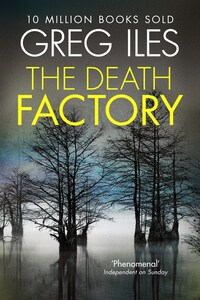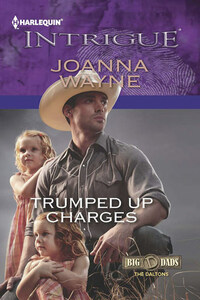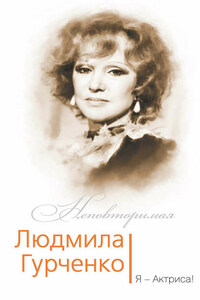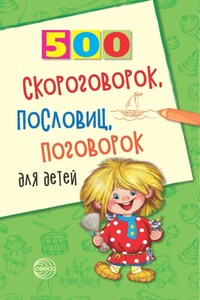THE DEATH FACTORY
WHEN YOU’RE TOLD that your dying father has something important to say to you before he passes, two feelings flash through you: first, the sense that you’re in an Alexandre Dumas novel, that some momentous family secret is about to be revealed—the lost inheritance, your true paternity, something like that. But once that passes, you realize that such a conversation is only natural. Because death is the end, and if a man doesn’t speak before it silences him, then the things he holds closest die with him.
In a way, I’d been expecting my father to die since I was a senior in high school, when he had his first heart attack. By age fifty he’d had a triple bypass, when the operation was far riskier than it is now. But Tom Cage was nothing if not stubborn. No matter what setbacks he endured after that operation (and there were many), he just kept practicing medicine. Even with diabetes and severe arthritis, he outlived my wife, who was born thirty years after him. And when I moved back to my Mississippi hometown with my daughter, who’d become so paralyzed by grief that she couldn’t leave my side, it was Dad and Mom who accomplished the miracle that no therapist in Houston had been able to manage: returning a grieving child to normalcy. Seven years after that, when Hurricane Katrina struck the Gulf Coast and when, as mayor, I began fighting to get basic services like electricity restored to Natchez, my father—by then seventy-three—was still beside me, helping coordinate the effort to get critical drugs to displaced storm victims who had fled north to my hometown.
But this morning, as my fiancée, Caitlin Masters, and I stood in a boat on the Mississippi River, spreading the ashes of a young woman who had died for helping a friend of mine expose a ruinous evil in our midst, I got the call I’d been dreading for years. Dad had collapsed at his office. Only swift CPR by his chief nurse and defibrillation by his partner had stabilized him sufficiently to reach the ER. When Mom called me off the river, she told me Dad was sure he was going to die and needed speak to me—and only me—before the end. I needed to get there as fast as I could.
After Caitlin and I raced back to shore and docked the boat, I floored my Audi all the way to the hospital. For the twenty-five minutes that took, I was certain I would arrive too late. For twenty minutes, my father was dead to me. Yet when Caitlin and I sprinted into the intensive care unit, I was informed that despite suffering a serious myocardial infarction, Dad was alive and had a chance to survive. Natchez’s sole cardiologist had just taken off from the local airport to fly his family to Walt Disney World when the ER called his cell phone and told him my father was being brought in with a heart attack. Peter Bruen had immediately landed his plane and raced to the hospital. Within minutes he’d placed a new stent in one of Dad’s major vessels—a procedure almost never performed in Natchez, only in nearby cities like Brookhaven or Jackson—and that made the difference between life and death.
Bruen was completing that procedure when I reached the hospital. A whispering crowd had already gathered outside the cardiac cath lab, as doctors and nurses waited to hear the fate of one of their own, a man who had practiced medicine in Natchez for more than four decades and in the army before that. Everyone fell silent as they wheeled Dad out on a gurney and transferred him to the ICU; then restrained applause broke out as he passed from view and Dr. Bruen appeared.
During my first visit to Dad’s bedside, I was shocked. His white beard was always well trimmed, but now it looked oddly unkempt, his skin white and waxy. I took his cold hand, whispered that I was there, and asked what he needed to tell me. He opened his eyes and blinked several times, then pointed at his throat. I placed an ice chip in his mouth and repeated the question. He looked at my mother beside me, then croaked, “What are you talking about?”
I looked back at my mother, then after some hesitation asked her to leave me alone with him. Reluctantly, she agreed. After I assured Dad that we were alone, I asked once more what he’d needed to tell me. He said he had no memory of saying anything like that to my mother. I decided to let it go for the moment, and he was obviously relieved.
That was five hours ago.
The first two passed like a death watch, as a solemn parade of hospital workers visited the ICU, quietly paying their respects. But as time slipped by and more lab tests came in, Dr. Bruen came to believe that yet again—against the odds—my father would live to fight another day. During my second visit to the bedside, Caitlin and I told Dad and my mother that only hours earlier we had decided to get married. After a seven-year relationship, that news should have seemed anticlimactic, but somehow it didn’t. It actually brought a weak smile to my father’s face, and my mother cried, knowing how badly my eleven-year-old daughter has been wanting that. We decided to wait to tell Annie about both the engagement and Dad’s heart attack. For the time being, Caitlin would pick her up from school and take her back to work with her.














